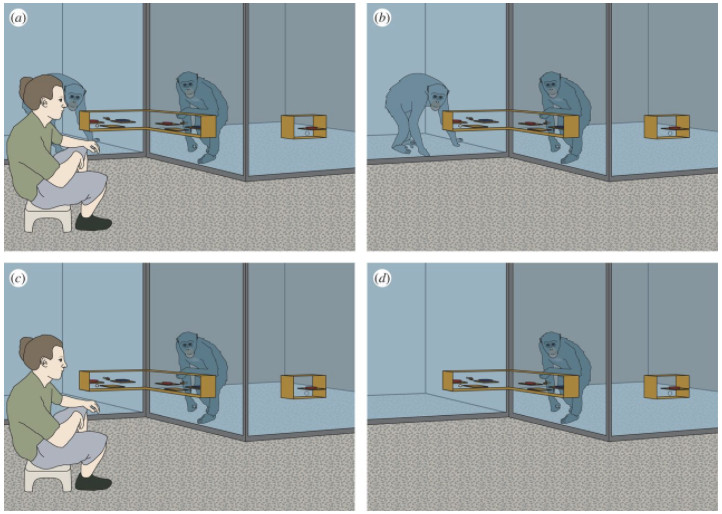Do chimpanzees really care about equity?
One of the most popular Youtube videos in comparative psychology features capuchins exchanging tokens for food with a human experimenter. It is fascinating to see how outraged the capuchin becomes
Are humans innately bad social scientists?
I know, this sounds a bit extreme. How can the ability to do (bad) social science be influenced by our genes? Well, quite easily if you carefully read Robert Trivers’ last book (see reviews in NYT
Mèng Zǐ (372 – 289 BCE) on the moral organ
This post is part of a series on the 'history of social sciences'.
Monday Tuesday Wednesday Thursday Friday Saturday
So far, in this mini-series on the (possibility of a) history of social scienc
Adam Smith (1723-1790) on mirror neurons and empathy
This post is part of a series on the 'history of human sciences'.
Monday Tuesday Wednesday Thursday Friday Saturday
OK, I admit. Adam Smith never talked about mirror neurons. So why am I bringing
Adam Smith (1723-1790) on innateness and cultural variability
This post is part of a series on the 'history of social sciences'.
Monday Tuesday Wednesday Thursday Friday Saturday
One of the debates that haunts the social sciences is the debate about what is
Adam Smith (1723-1790) on ultimate and proximate causes in psychology
This post is part of a series on the 'history of social sciences'.
Monday Tuesday Wednesday Thursday Friday Saturday
Darwin's theory of evolution allows us to draw a distinction between ultimate
Adam Smith (1723 – 1790) on intuitive and reflective processes
This post is part of a series on the 'history of social sciences'.
Monday Tuesday Wednesday Thursday Friday Saturday
Yesterday, I suggested that there was a history of social sciences to be told. A
History of social sciences week!
I’m a big fan of books on the history of science. I like to find out about the whole story: how things got started in Ancient Greece with people disputing traditional views, how it continued during
Cultural relativism: Another victim of Arab revolutions?
As we are watching the fall of dictators and the wind of liberty sweeping in the Arab world, we may not have noticed another victim of this “springtime of Arab people”, namely the individualist
Children as scientists
(Hat Tip to Ed Yong!)
At the end of December, Biology letters published a quite unusual paper entitled "Blackawton bees". It contains some very refreshing conclusions such as: "We also discovered
The evolutionary and cognitive basis of the cultural success of garbage trucks among western toddler
The other day, I was browsing Youtube, looking for toddler's cartoons to entertain my 18 months old boy. I was not very optimistic though: Like many toddlers, my son's attention span rarely exceeds a
Video games as applied anthropology
Pursuing its ambitious development, the ICCI blog has decided now to open a "video games" section. And today, we are discussing the release of Civilization V, the last sequel of one of the most
Picture of the week: The colors of the Web
In a recent post, Ophelia wondered about the basis of people's colours preference: Which colour do you prefer ? Have you always preferred it, or did your preference change ? Can you tell why you
Philippa Foot, Famous Philosopher, Unknown Anthropologist (1920-2010)
Philippa Foot died at her home in Oxford, England, on Oct. 3, her 90th birthday (see the NYT here and the Guardian here, and note the difference). In her career, she defended the view that moral
Picture of the week: How segregated is your city?
One of the tools that may change our view of culture is modelization. It helps us understand big phenomena such as language change or the dynamics of hot topics. One of the first and the most
What if there had never been a Cognitive Revolution?
In a previous post, I questioned the relevance of the label “Cognition and Culture” for our institute. Why not ‘Cognition and Society’ instead? Choosing ‘culture’ over ‘society’, I
Homeopathy as witchcraft
The British Medical Association's annual conference of junior doctors has declared that homeopathy is witchcraft. They have voted a blanket ban and an end to all placements teaching homeopathic
Why do academics oppose capitalism?
A few weeks ago, Megan McArdle, the business and economics editor for The Atlantic, wondered why Academia treats its workforce so badly.
Academia has bifurcated into two classes: tenured professors
Why do we make our tastes public?
Facebook has recently changed the way it asks its users to endorse brands and celebrities on the site. Rather than ask people to "become a fan" of say, Starbucks or Lady Gaga, Facebook will instead
Is there a language instinct?
Chomsky's theory has played a pivotal role in the cognitive revolution and is often seen as one of the pillar of cognitive sciences, especially in the cognition and culture field. It is therefore
Are variations in economic games really caused by culture?
Last month, Science published an research article by Joe Henrich et al. showing that market integration and participation in world religion covary with fairness ('Markets, Religion, Community Size,
On the Use of Natural Experiments in Anthropology
Controlled and replicated laboratory experiment, in which an experimenter directly manipulates variables, is often considered the hallmark of the scientific method. It is virtually the only method
Cultural differences and linguistic justice
Franz de Waal just wrote an interesting post at 3 Quarks Daily. He is currently in Japan to promote his latest book The Age of Empathy and he writes about cultural differences among scientists:
Better live in Sweden than in the US: Why More Equal Societies Almost Always Do Better
Let's talk about politics for once. It is common knowledge that in rich societies the poor have shorter lives and suffer more from almost every social problem. In a quite fascinating book, The Spirit


